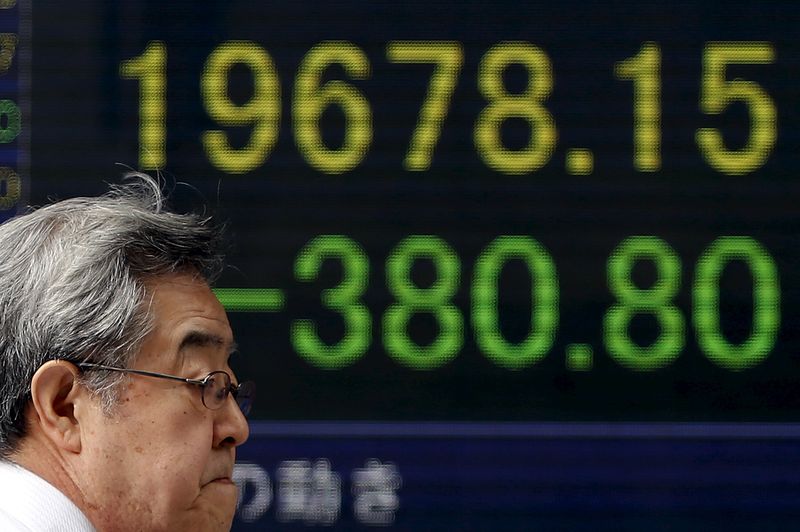Investing.com - Asian stocks fell in morning trade on Thursday after U.S. markets tumbled overnight.
China's Shanghai Composite and the Shenzhen Component both traded 0.7% lower by 10:50 PM ET (02:50 GMT).
Hong Kong's Hang Seng Index dropped 0.1%.
Protests in the city remained in the spotlight after U.S. President Donald Trump said he thinks Xi Jinping, China's leader, wants to "quickly and humanely solve the Hong Kong problem" and that China wants a trade deal but they should "work humanely with Hong Kong first." In a tweet, Trump suggested a "personal meeting" with Xi over the ongoing Hong Kong crisis, but did not provide any further details.
The Hong Kong protests, which began in early June, have started to impact the city's economy, Bloomberg said.
Several Chinese firms are now reconsidering raising funds in Hong Kong. One company scrapped plans for a $500 million IPO in Hong Kong, while at least two other companies are considering the same move, the article reported citing two senior bankers on the deals.
"The social and political instability has had an impact on people's perceptions," David Cho, partner at law firm Dechert LLP, told Bloomberg.
Japan's Nikkei 225 gained 1.3%. Moon Jae-in, South Korean leader, said Seoul would "gladly join hands" if Tokyo chooses dialogue. Tensions between the two nations have been intensifying recently after Japan imposed curbs on exports of some high-tech materials to South Korea. Moon has warned that global free trade order could be impacted if a country "weaponises" a sector where it has an upper edge.
Down under, Australia's ASX 200 slumped 2.3% even after data from the statistics bureau showed the country's labor market added 41,000 roles in July from the previous month, almost three times more than the forecasted numbers.
Major Wall Street Indexes dropped about 3% overnight after the the yield on the 10-Year Treasury note briefly fell below that of the 2-Year Treasury for the first time since 2007. When the yield curve inverts, paying higher yields for shorter-term securities, it indicates that investors are not only moving out of stocks and into safer bonds, but that they are worried about short-term prospects and piling into longer-term debt.
The 10-year yield closed at 1.595%, while the 2-year yield was at 1.589%.
